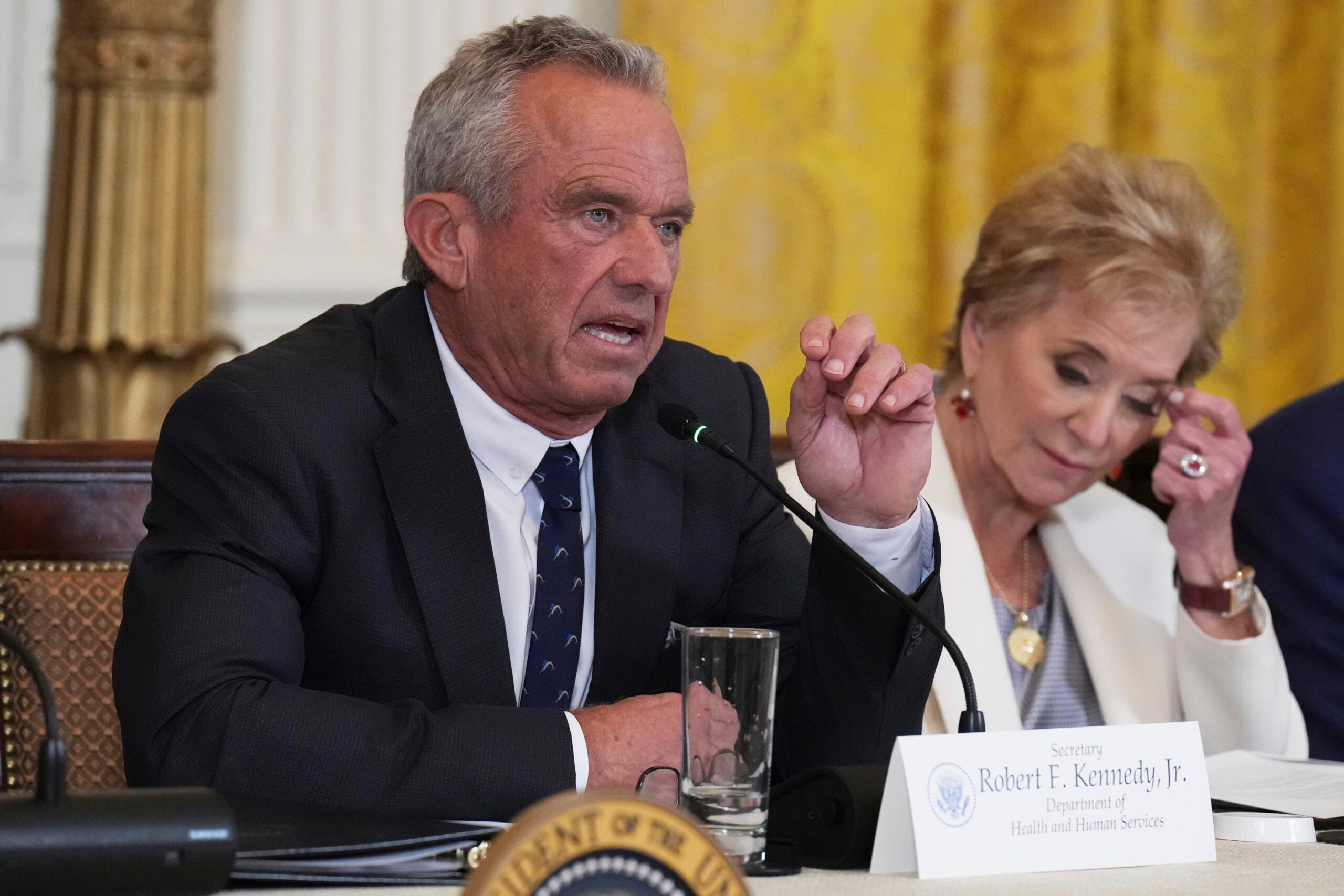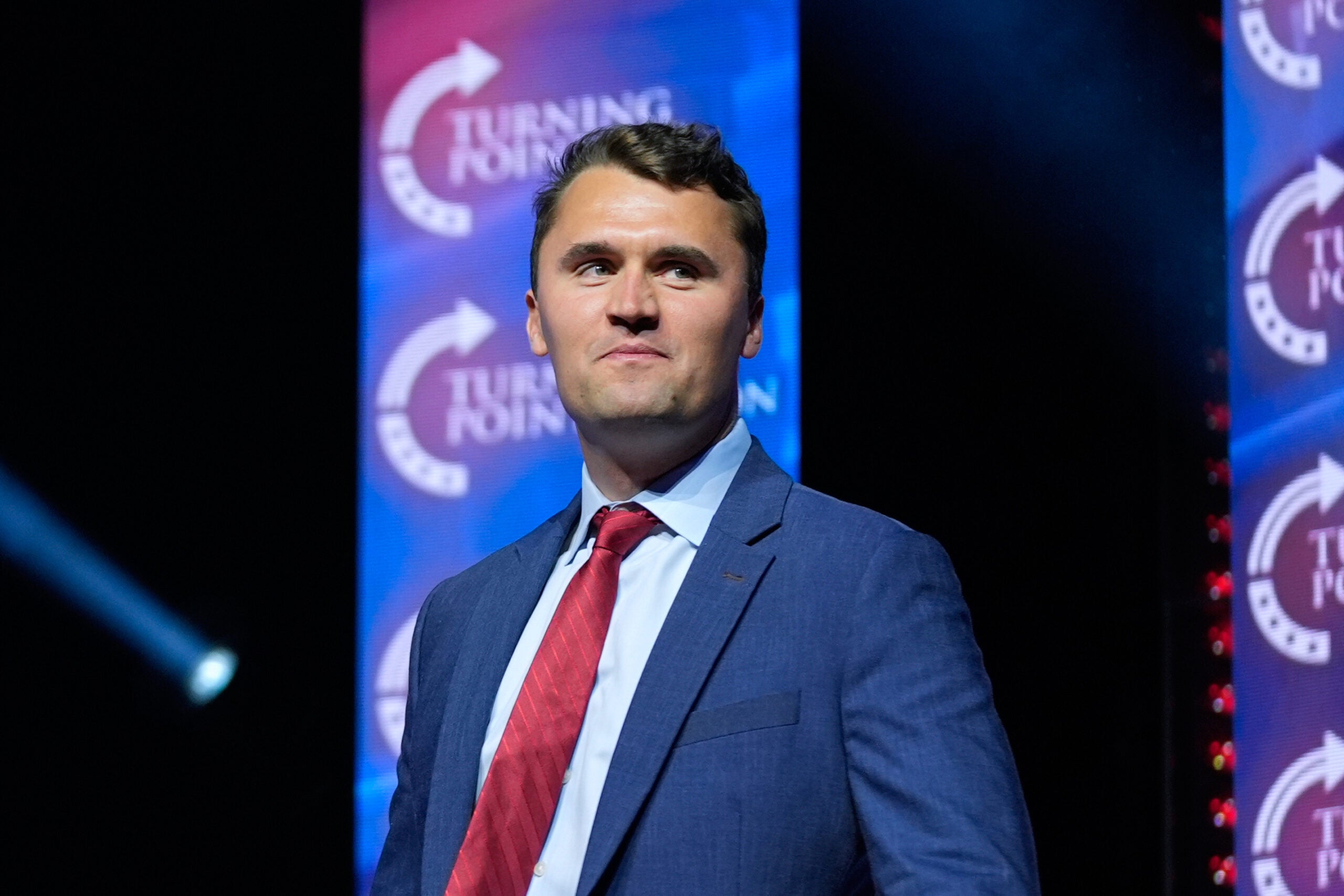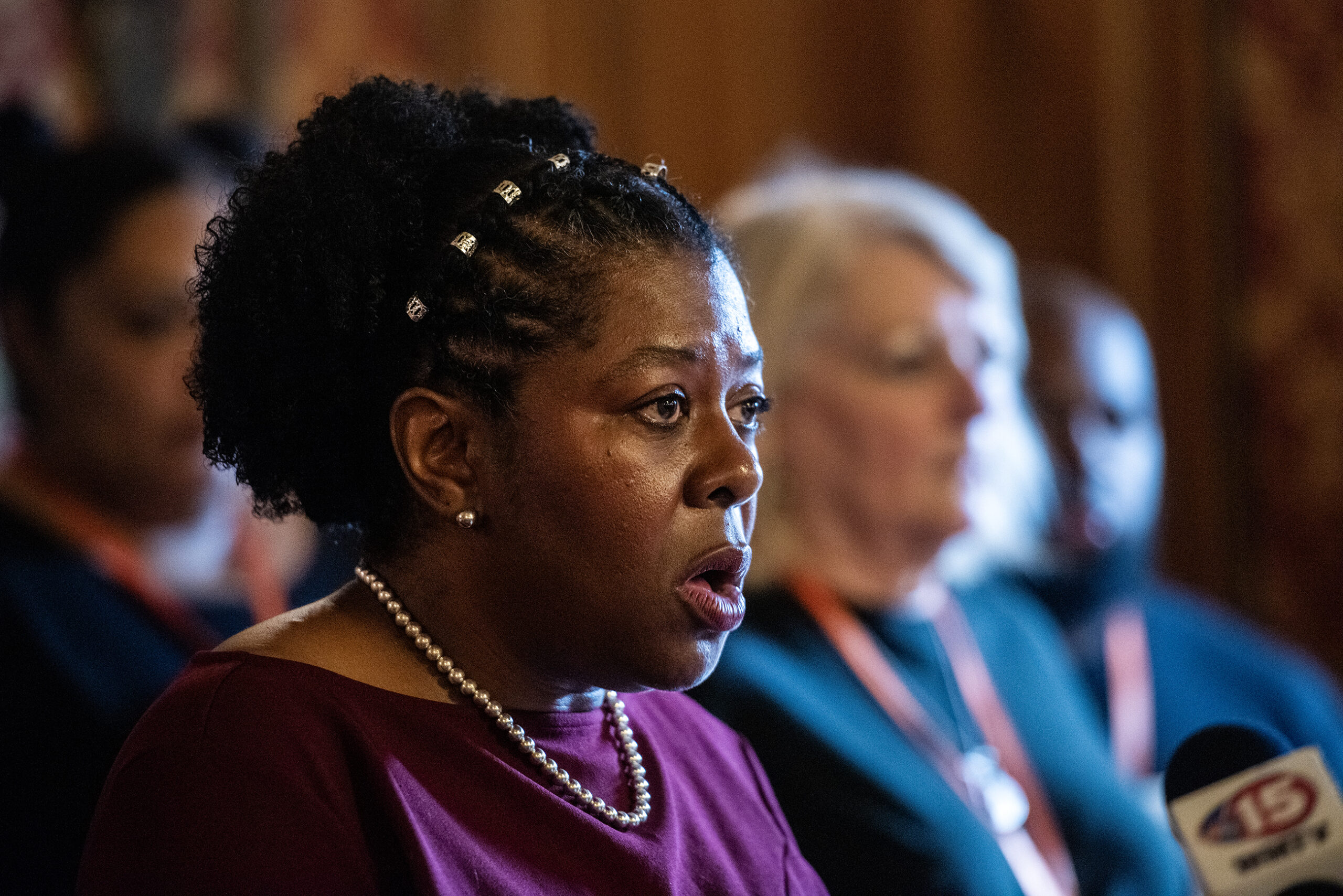A bill banning cell phones in classrooms has passed the Wisconsin Senate and now heads to Gov. Tony Evers’ desk, though it’s unclear whether he’ll sign it into law.
The measure was part of a lengthy agenda Tuesday that also included measures aimed at allowing candidates to remove their names from general election ballots after they’ve dropped out, expanding health insurance coverage of enhanced breast cancer screenings and honoring conservative activist Charlie Kirk.
Cell phone bill part of national debate
The cell phone bill would require public school boards to create policies prohibiting students from using cell phones, tablets and laptops during instructional time. The bill has exceptions that allow students to use their phones for emergencies and threats.
Cell phone bans for students have become a bipartisan issue elsewhere, with Democratic leaders backing the idea in states like New York and Illinois this year. Several other states have already enacted bans of their own.
But in Wisconsin, the GOP bill hasn’t garnered much support from Democratic lawmakers. Senate Minority Leader Diane Hesselbein, D-Middleton, told colleagues she is strongly opposed.
“My question is: Why are we, the state, worried about taking away kids’ cell phones before we enact legislation that prevents kids from having access to guns and prevents mass shootings?” Hesselbein said.
Hesselbein said the bill strips local control from school boards and would make it harder for parents to contact their kids in the event of a mass shooting.
Sen. Rachel Cabral-Guevara, R-Appleton, said during recent visits to Europe and Canada she met with policy makers on the left and right who were working together on similar bans. She said, “Wisconsin seems to be the only state where this is a partisan issue.”
News with a little more humanity
WPR’s “Wisconsin Today” newsletter keeps you connected to the state you love without feeling overwhelmed. No paywall. No agenda. No corporate filter.
“Wisconsin wants this,” said Cabral-Guevara. “Wisconsin is asking for this. A Marquette poll came out — 89 percent of Wisconsinites are asking that this be done.”
After debate, the bill passed the Senate 29-4, with four of the chamber’s 15 Democrats voting against it. It passed the Assembly earlier this year with all Democrats opposed.
A spokesperson for Gov. Evers did not immediately respond to an email asking if he’d sign it.
Senators approve bill responding to RFK Jr. 2024 ballot controversy
Senators gave final legislative approval Tuesday to a bill allowing independent presidential candidates and any candidate for state races to remove their names from ballots before a general election. Currently, a person’s name can’t be pulled from a ballot unless they die.
The bill was written by Republicans after Robert F. Kennedy Jr., who ran for president as an independent before suspending his campaign and endorsing President Donald Trump, was unable to remove his name from general election ballots in Wisconsin. Trump ultimately tapped Kennedy as his secretary of the Department of Health and Human Services.
Kennedy sued over the matter and the Wisconsin Supreme Court rejected his challenge less than two months before the November election.

Sen. Chris Larson, D-Milwaukee, tried to amend the GOP bill to state that candidates who suspend their campaigns can only be removed from ballots if they haven’t “been offered anything of value to withdraw his or her candidacy” in a veiled shot at Trump and Kennedy. He also said he’s concerned the bill would allow someone to drop from the ballot after they’d won a primary election.
“If you take their name off, then you have now denied voters, potentially, a choice between one of the two parties,” Larson said. “And there’s no mechanism in this bill to actually replace that party’s nominee on the ballot.”
No Republicans spoke in favor of the bill from the floor. It passed along mostly party lines with some exceptions. Sen. André Jacque, R-New Franken, voted against the measure with all Democrats except Sen. Sarah Keyeski, D-Lodi, who voted in favor with all other Republicans.
After heated debate, Senate passes resolution honoring Charlie Kirk with party-line vote
Things got heated on the Senate floor during a debate over a GOP resolution honoring conservative activist Charlie Kirk, who was assassinated Sept. 10 at a Utah college event organized by his group Turning Point USA.
The resolution described Kirk as a devoted husband and father with an “unwavering conviction to advancing the timeless principles of faith, liberty and truth.” It stated the Wisconsin Legislature “joins together in prayer for his family and for our nation” and “commends his memory to future generations as a beacon of conviction and courage.”

Jacque noted the Senate was considering the resolution on what would be Kirk’s 32nd birthday.
“To his family, our hearts are with you. To our nation, our prayers rise for healing. And to Charlie, we honor you,” Jacque said. “We remember you, and will not forget the legacy you leave behind.”
Hesselbein tried to amend the resolution by adding language condemning Kirk’s assassination and extending condolences to his family, while denouncing “all forms of political violence — including the assassination or attempted assassination of public officials and public figures — regardless of political party or ideology.”
Senate President Mary Felzkowski, R-Tomahawk, ruled Hesselbein’s amendment wasn’t allowed because it expanded the scope of the original resolution.
Sens. La Tonya Johnson and Dora Drake of Milwaukee, both of whom are Black, took issue with how the GOP resolution portrayed Kirk’s legacy. Johnson read a list of Kirk’s past quotes criticizing Black, Muslim and Jewish people as well as Democrats. She claimed Kirk emboldened his supporters with “his hatred and turned them loose to be open to accepting their own racism and affirming their bigotry.”
“The thought that these beliefs are in service to the cause of freedom only makes sense if you have a very different belief of freedom than most everyone else — the belief that freedom only applies to the whitest Americans, the belief that anyone who looks like me or represents a minority group is somehow unqualified and undeserving of the fundamental right of freedom,” Johnson said.

Drake said Republican senators were “honoring someone whose legacy has divided this country” and the resolution is therefore divisive itself.
Sen. Chris Kapenga, R-Delafield, accused Johnson of misquoting Kirk and taking his comments out of context.
“It’s a horrible thing that happened, so we don’t need to trash somebody because we disagree with them,” Kapenga said.
The resolution honoring Kirk passed by a party-line vote of 18-15. A similar version passed the Assembly after it was amended to include Hesselbein’s language condemning all acts of political violence.
Wisconsin Public Radio, © Copyright 2025, Board of Regents of the University of Wisconsin System and Wisconsin Educational Communications Board.





